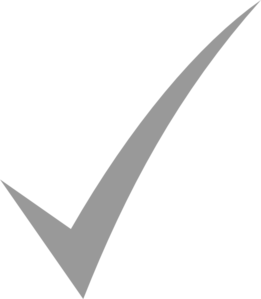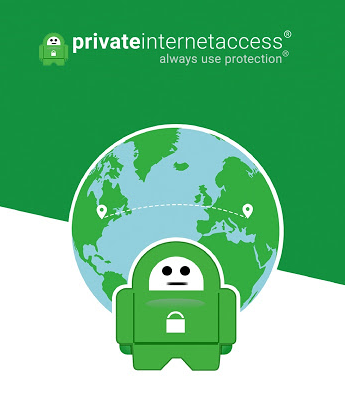Why should you hide your IP Address?
“Why do I even have to hide my IP address? I’m not a criminal nor a hacker.” This is a common misconception among most internet users.
However, you don’t have to be involved in some shady business to benefit from using a VPN, which acts as an IP hider / IP blocker.
But first, what exactly is an IP address? In layman’s term, it’s that unique identifier assigned to your device that’s connected to a network. It’s similar to a postal address and everything you do online can be tracked through your IP address.
It’s how advertisers know what ads to show you. They know your interests, demographics, what products you’ve been searching for, or if you’re about to get hitched. Creepy, right?
This is also how streaming services like Netflix cut you off from accessing their content due to geographical restrictions. Yes, they know exactly where you are at this very moment.
So there are a lot of legit reasons why someone will want to hide their IP address online. With a secure VPN connection, you can browse the internet in peace without those annoying pop ads AND you can stream video content from anywhere in the world. Privacy is another thing. Does anyone really need to know your penchant for pimple-popping videos?
How to hide your IP address
So now, you must be asking: how do I hide my IP address? There are 3 simple ways to do this:
You can use a TOR browser - a software program that can keep your web traffic anonymous. It’s free but is notoriously slow, so you won't be able to enjoy torrenting or video streaming.
A proxy server can also mask your IP address but it’s not without any drawbacks. Besides slowing your internet connection down, it still goes through a third-party DNS server that can see your real IP address.
The best and recommended option is to use an encrypted VPN service. It’s significantly faster than the two aforementioned methods, plus it offers additional security measures other than just keeping your online persona under the radar.
What is a secure VPN?
A virtual private network (VPN) acts as a middle man between your devices and the Internet. It encrypts all the data coming from your device before sending it over through one of their servers in another location. In doing so, a private VPN not only hides your actual IP address but also makes it seem like you’re browsing from another location.
A VPN does a good job of keeping you away from the prying eyes of online eavesdroppers, your ISP, advertisers, or even the government. A private VPN connection also offers unlimited P2P/torrenting, WiFI privacy, unlimited HD streaming, multiple device protection, router support, user-friendly apps, and more.
Setting up usually takes no more than 5 minutes and you will have access to hundreds of servers located in different countries around the world.
Is it legal to use a VPN?
Totally! Using a secure VPN doesn’t automatically tag you as a criminal, political dissident, or whistleblower. The service itself is legal but what you do with it is subject to your country’s own law and regulations.
It’s perfectly fine to mask your IP address and protect your information from third parties. It’s a different matter altogether if your intent is to infringe on copyrights, or spread a computer virus. It’s all about whether you abuse the service or not and also where you’re located. You won't be able to use a VPN in North Korea or Iran, but in most countries, it is perfectly legal.Disclaimer
We are reader supported and only receive commissions from the VPN companies we recommend on this page if you click our links and make a purchase via our site. We try to keep all of the information on this site as up to date and fresh as possible, but cannot guarantee that this will always be the case. All prices quoted on this site are based on USD so there could be slight discrepancies due to currency fluctuations.
 Strictest no-logs policy
Strictest no-logs policy Unlock any restricted content (Netflix, Disney+ etc.)
Unlock any restricted content (Netflix, Disney+ etc.) Supports 10 devices simultaneously
Supports 10 devices simultaneously Touted as the most anonymous VPN service
Touted as the most anonymous VPN service








 Servers especially optimized for P2P and torrenting
Servers especially optimized for P2P and torrenting 7 simultaneous VPN connections allowed with each plan
7 simultaneous VPN connections allowed with each plan VPN servers located across more than 90 countries
VPN servers located across more than 90 countries No-logging policy
No-logging policy









 Unlock Netflix and Hulu in HD/4K
Unlock Netflix and Hulu in HD/4K Unlimited P2P/Torrenting
Unlimited P2P/Torrenting Ultra fast with absolutely no logs policy
Ultra fast with absolutely no logs policy Secure AES 256-bit encryption
Secure AES 256-bit encryption








 One plan for an unlimited number of devices
One plan for an unlimited number of devices Great value for money
Great value for money CleanWeb Ad-blocker
CleanWeb Ad-blocker 30-day money-back guarantee
30-day money-back guarantee








 Ultraflix servers for unblocking streaming services
Ultraflix servers for unblocking streaming services Allows 3 simultaneous device connection
Allows 3 simultaneous device connection 123 server locations in 60 countries
123 server locations in 60 countries Fast, secure, and unlimited web access
Fast, secure, and unlimited web access








 Exclusive offer: Save 35% & try ExpressVPN 100% risk-free!
Exclusive offer: Save 35% & try ExpressVPN 100% risk-free! Super fast & very secure
Super fast & very secure Comes with easy-to-use apps for every device under the sun
Comes with easy-to-use apps for every device under the sun Works with Netflix, BBC iPlayer & torrenting/P2P
Works with Netflix, BBC iPlayer & torrenting/P2P









 User Friendly Interface
User Friendly Interface 190+ countries
190+ countries HMA doesn’t log your IP address
HMA doesn’t log your IP address 20 Gbps server speeds
20 Gbps server speeds








 3,200+ virtual servers in 70+ locations around the world
3,200+ virtual servers in 70+ locations around the world Trusted by over 650 million users worldwide
Trusted by over 650 million users worldwide Military-grade encryption
Military-grade encryption Try it 45 days risk-free
Try it 45 days risk-free





 Trusted by over 45 Million Users!
Trusted by over 45 Million Users! Advanced security with 100% guaranteed no-log policy
Advanced security with 100% guaranteed no-log policy Over 3600 servers in 74+ countries
Over 3600 servers in 74+ countries One subscription supports an unlimited number of devices
One subscription supports an unlimited number of devices








 Both Netflix and torrenting friendly
Both Netflix and torrenting friendly Cross-platform compatibility
Cross-platform compatibility Servers in 34 countries
Servers in 34 countries A great choice for gamers
A great choice for gamers





 1
1


